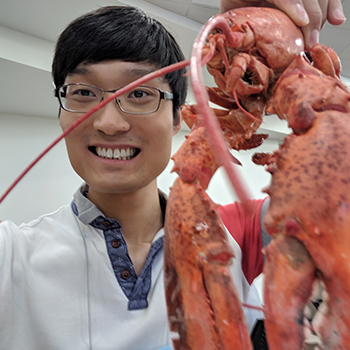
Reasons to cook for yourself
An optimization problem
Have you noticed how MIT seems to repel good restaurants? Go Northwest to Harvard Square, and you’ll see a squadron of restaurants catering to fortunate Harvard students. Go South, across the river, and you’ll see a delightful selection of restaurants catering to happy shoppers. Go further East to Chinatown, and the whole place is teaming with huoguo and pho, egg tarts and boba tea. But MIT, the birthplace of algorithms that enrich the computers and molecules that brew chemical broth, is a desert of human food.
The reality is that every MIT engineer needs to engineer their own food. Cooking, however, has its own version of bias-variance tradeoff – stick to few recipes you can cook well, then you’ll be eating the same food over and over again; venture to cook something fancy that you have never tried, then your food might deviate far away from expectation! Thus, we’ve all had to endure the famous agony of “what should I eat?” – rather than “how should I eat” – that characterizes the woe of post-agrarian society. Spending your precious time and brain power on thinking about and planning for cooking might feel wasteful, especially for a time-crunched grad student. Yet, I’ve learned that cooking is far from being a waste of time, and would like to convince you with some of my favorite reasons for cooking.
Saving money. As grad students, we need to survive with limited resources. As organic “machines” composed of carbon, hydrogen, oxygen, nitrogen and running on redox reactions, we need to provide our body with a certain number of carbon chains that the digestive tract is capable of breaking down. Hence, survival during doctoral education can be expressed as the following optimization function: argmin($/C-C bond). Preparing your own source of edible reduced carbons is what provides convexity to the above optimization function.
Maintaining a connection to home. Skype with your family. Ask your grandma what magical ingredients she puts into your favorite soup. This can grow into your long-term hobby. For example, one of my friends brought yeast from home to continue his hobby of bread and pizza making. Another friend’s hobbies also involve yeast, but with additional anaerobic respiration. From there, he and his roommates eventually started a successful brewery.
Having a sense of achievement. According to an urban legend, a professor once asked his graduate students to dig a hole in the yard every morning and fill the hole back every evening. When asked by his fellow professor, he replied: “it’s so that they can say they have achieved something today.” Doing research can feel like digging and filling the same hole over and over. Your code can get bizarre bugs and your experiment can fail; but, at the end of the day, you at least cooked yourself a nice bowl of kimchi fried rice!
Maintaining health. One caveat of the above optimization function: there exists a local optimum where you may attempt to survive purely on free cookies from various talks and seminars you attend. This is, in general, not considered as a good move as you need to consider the regularization terms called ‘blood sugar’ and ‘blood pressure’. The process of cooking your own food has these regularization terms embedded in it.
All in all, cooking your own food will save you lots of money, keep you fit and healthy, while bringing a sense of achievement and stronger connection with your family. All fairly important for living an optimal life, I’d say. So, while being stuck at home, why don’t you cook a fancy meal for yourself?
Share this post:
